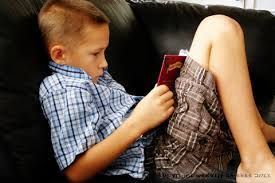What Do We Tell The Children?
Tell them, first, that we will protect them.
Tell them, first, that we will protect them. Tell them that we have democratic processes in the U.S. that make it impossible for one mean person to do too much damage. Tell them that we will protect those democratic processes ― and we will use them ― so that Trump is unable to act on many of the false promises he made during his campaign.
Tell them, second, that you will honor the outcome of the election, but that you will fight bigotry. Tell them bigotry is not a democratic value, and that it will not be tolerated at your school. Tell them you stand by your Muslim families. Your same-sex parent families. Your gay students. Your Black families. Your female students. Your Mexican families. Your disabled students. Your immigrant families. Your trans students. Your Native students. Tell them you won't let anyone hurt them or deport them or threaten them without having to contend with you first. Say that you will stand united as a school community, and that you will protect one another. Say that silence is dangerous, and teach them how to speak up when something is wrong. Then teach them how to speak up, how to love one another, how to understand each other, how to solve conflicts, how to live with diverse and sometimes conflicting ideologies, and give them the skills to enter a world that doesn't know how to do this.
Tell them bigotry is not a democratic value, and that it will not be tolerated at your school.
Teach them, third, how to be responsible members of a civic society. Teach them how to engage in discussion—not for the sake of winning, but for the sake of understanding and being understood. Students need to learn how to check facts, to weigh news sources, to question taken-for-granted assumptions, to see their own biases, to take feedback, to challenge one another. We need to teach students how to disagree—with love and respect. These skills will be priceless in the coming months and years as we work to build a democratic society that protects the rights of all people ― regardless of the cooperation or resistance those efforts face from the executive branch.
Say that silence is dangerous, and teach them how to speak up when something is wrong.
Finally, remind them ― to ease their minds ― that not everyone who voted for Donald Trump did so because they believe the bigoted things that he has said this year. Many of them voted for him because they feel frustrated with the economy, they feel socially left behind, and they are exercising the one power they have. We need to challenge Trump and his supporters to differentiate between their fears and the bigotry catalyzed by those fears.
In the aftermath of this traumatic election, I hesitate to even exercise my voice in this way. In the past year, I received hate mail and a death threat from white supremacists for blog posts like this ― blog posts that are, let's be honest, fairly insignificant expressions of personal opinion from a person with very little power. I am not a threat. And yet people have threatened me ― and my family ― for expressing my view that we should build a world in which all human beings can live freely in the wholeness of their identities. I fear that this kind of intimidation will only increase in the event of a Trump victory. I fear that it will worsen tomorrow ― as soon as I hit send ― if Trump supporters are emboldened in their aggression towards people with whom they disagree. And yet the only thing that makes me feel safe in this moment ― as I stare into the face of a possible of a Trump victory ― is to speak up and speak out, and to invite others to do the same.
Heather Arnet, CEO of the Women and Girls Foundation called Voices4Hillary's attention to this article by
Ali Michael, Ph.D. Teacher educator, consultant, writer, filmmaker. Reprinted from Huffington Post.
###
November 10, 2016
